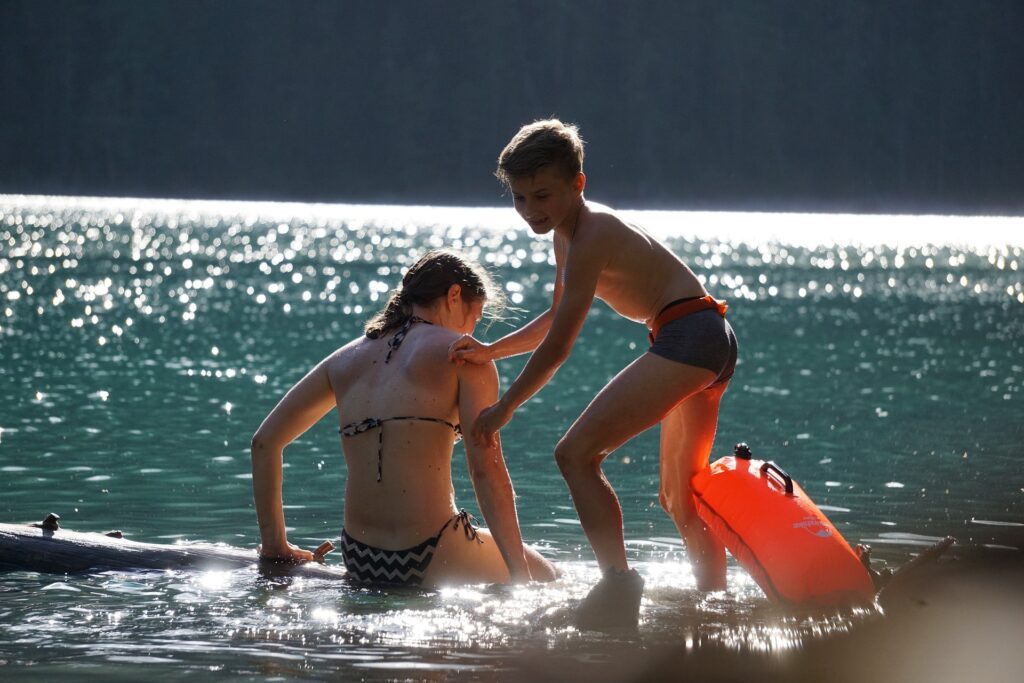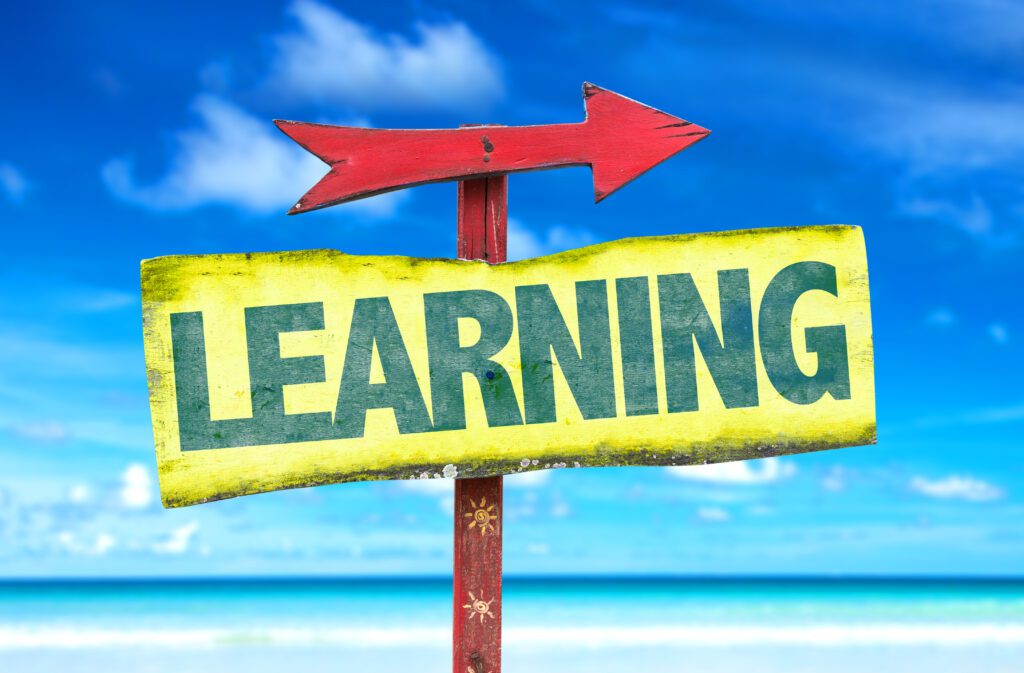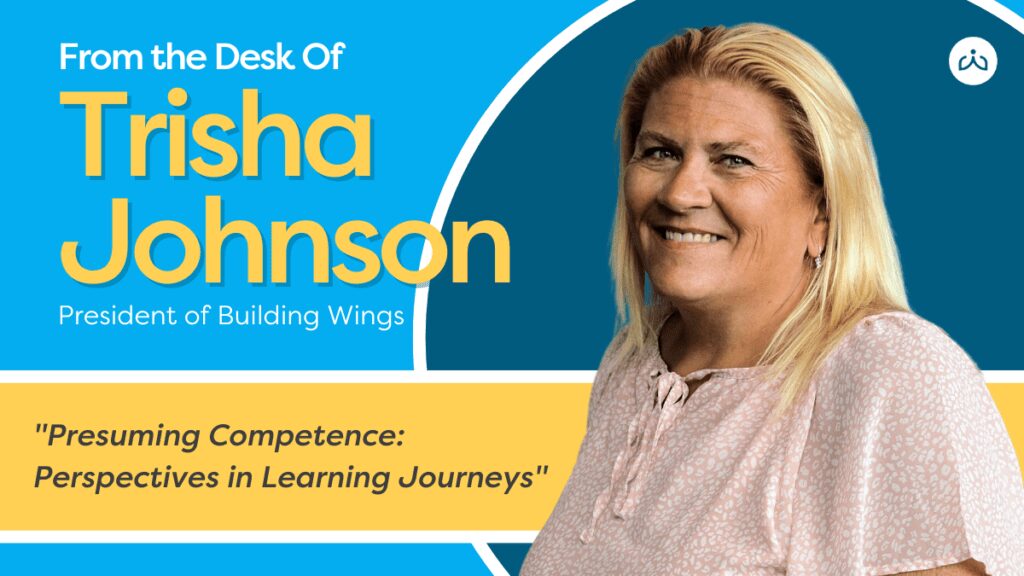Presuming Competence:
Perspectives in Learning Journeys
Presuming competence –
The belief that all students can learn, though in different ways,
at different times, and with learning styles that best suit them,
Lessons from the Beach
One afternoon as I sat in my beach chair enjoying some lakeside sun, I noticed a group of children who had spotted a floating trampoline in the water and were swimming toward it.

The first two kids to arrive at the float used their arm strength to easily pull themselves up onto the inflatable toy. Three children who followed attempted to pull themselves up in the same way, only to fall back into the water.
The two kids who were on top of the raft cheered and encouraged their friends in their efforts. They reached over the side to help pull up one friend as the other two children in the water strategized their next move. By putting their feet on the hand grab and leveraging their abdominal muscles, they were finally able to climb atop the trampoline. All five kids made it onto the toy, though they used three different methods to get there.

I share this story as it shows that just how belief and flexibility in how they got atop of the float should be how we in education approach all students’ learning journeys.
Giving ALL Learners the Opportunity to Learn
The U.S. Supreme Court’s ruling in Endrew R. v. Douglas County SD (2017) ensures that every student with disabilities is guaranteed “free appropriate public education” (FAPE) under the Individuals with Disabilities Education Act (IDEA). Chief Justice John Roberts wrote: “Every child should have the chance to meet challenging objectives.” This ruling overturned a standard that allowed educational programs to provide “de minimis” educational benefits to students with learning challenges.

Since that ruling, we have seen new standards, new expectations of general education practices, and improved graduation rates for special education students, all indications of positive movement. However, I sit here wondering why we still must convince politicians, administrators, educators, and families that children have unique learning styles and they are all capable of learning–just in their own ways.
Presuming Competence and Believing in Learners
In education, we must be better at putting aside assumptions and focusing on what a student can do. How can we do this? First, we must believe that all students–regardless of their challenges–are capable of learning.
Rita Pierson, a teacher for over 40 years, called upon educators in her TED talk to believe in their students by establishing genuine human connection. A presumption of competence and a belief that a student can learn needs to be both felt and communicated.
Being a Champion for ALL Learners
My partner, Don Johnston, would not be who he is today without a teacher who presumed his competence, held high expectations, and believed in his abilities. You can read of his joy as he overcame his learning challenges with his teacher Mrs. Tedesco in his autobiography, Building Wings: How I Made It through School.
When you first look at a class filled with students, you are not yet sure what students can learn. Presuming competence and embracing all that those students can learn is what education is all about. Every educator can be that person who believes and is a champion for learners.

Trisha Johnson has been an advocate for learners for the last 25 years and now serves as the president of Building Wings. She believes that ALL Means ALL and that all students can learn.

